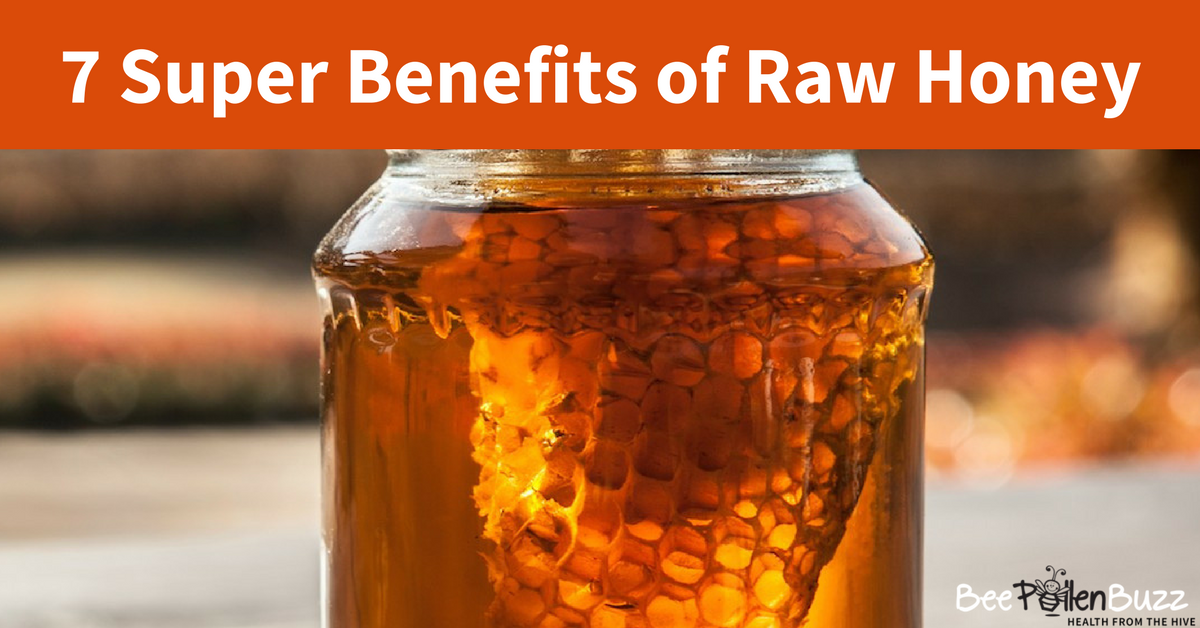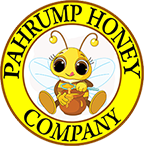
The world of science is actively researching the benefits of raw honey and as a result, can now prove and explain the benefits honey holds. Stories of raw honey that were once considered ‘folklore’ are now being scientifically validated. There is now no doubt – raw honey heals!
1. Can Honey Help You to Live Longer?
Do you regularly consume honey? If you do, you just might live longer according to a study in Current Aging Science. This was a small study so the results always have to be taken in context, but the study suggested that those who regularly consume honey live longer than those who don’t.
This doesn’t surprise me. When you take into consideration the many other studies done on raw honey showing prevention or treatment of individual diseases such as cancer, diabetes and heart disease, the fact that the study showed a significant drop in all-cause mortality (the risk of dying from anything) during the 25 year follow up should not shock anyone.
Labelled the Caerphilly Cohort, the intial study involved 665 men and only measured risk factors for vascular disease, among others. Of these 665 men, 41 reported eating honey during the seven days. Again, it is not a surprise to learn that the 41 men who ate honey were found to be healthier overall than the 624 men who didn’t eat honey.
So what does this tell us? Looking at only one factor (eating honey) for only one week, we can’t draw too many conclusions. We can however, make some conclusions based on the 25 year follow up study. It is very safe to say that honey is a part of a truly healthy diet, one that leads to longer life.
Does honey cause the longer life by itself or is honey just one food consumed by these people who likely consume many healthy foods and avoid processed, refined and artificial foods most of the time? I suspect this is the case and that honey consumption is part of an overall healthy eating lifestyle followed by these people.
On the other hand, recent studies have indicated that honey may help prevent or treat (in animals, humans and in vitro) conditions such as diabetes, hypertension, cholesterol, immunity issues and more. We also know raw honey is very high in antioxidants and healthy bacteria like acidophilus, both of which are linked to longer, healthier life. As you age, if you have low blood pressure, low ‘bad’ cholesterol, balanced blood sugar and high levels of natural antioxidants in your body, it is not a stretch to think that you’ll live longer than the average person.
So which is it – is honey a ‘magic bullet’ by itself or is honey consumption just one factor or food in the cupboards of healthy, long lived people? More research is needed but I am not taking any risks – one tablespoon a day of pure Raw Honey is included in my diet every day either in my morning smoothie, on my toast or as a treat right off the spoon.
2. Raw Honey Kills Bacteria That Cause Chronic Sinusitis
Do you have chronic sinus issues?
A new study from researchers at the University of Amsterdam shows honey to be effective in killing bacteria that cause chronic sinusitis. Chronic sinusitis affects millions of people every year.
In chronic sinusitis, the mucous membranes in the sinus cavities become inflamed, causing headaches, stuffy nose, and difficulty breathing.
Though it can be caused by allergies, chronic sinusitis can also be caused by bacteria that colonize in the nose and sinuses.
What I suggest for people suffering with sinus issues is to consume 1 to 2 tablespoons of quality raw honey per day on its own or in herbal tea.
3. Use of Honey May Lower Cholesterol levels
Scientists recently investigated the potential health benefits of raw honey as a substitute for refined sugars and demonstrated that compared to sugar, honey may produce lower blood triglycerides.
The goal of the scientists was to determine the influence of honey verse sugar on fat accumulation and cholesterol in two groups of mice over 116 days.
What they found was that total cholesterol tended to be lower in the honey fed mice.
The results suggest that consuming raw honey may potentially promote lower cholesterol over a long term period.
Details of the study can be found in the Journal of the Federation of American Societies for Experimental Biology.
4. Benefits of Raw Honey Include Acne Treatment
Doctors recently found success using honey to treat a severe form of acne called Hydradenitis suppurativa (HS). It is a chronic, debilitating disorder that occurs deep in the skin where the sweat glands are located.
Doctor’s used a special honey dressing called Leptospermum honey on the wound.
This type of honey’s antibacterial effect has been documented for many organisms found in chronic wounds, even those with antibiotic resistance. It displays significant antibacterial effects.
In one particular case, a 17-year-old young man with a 3-year history of this type of acne and recurring episodes of painful abscess formation that required medical and surgical care (with no success), applied the honey dressing. With each dressing change, improvement was seen until there was full healing.
As a result of this and other cases, this special honey dressing is now the dressing of choice for pediatric patients in this practitioner’s clinical practice.
You don’t need to suffer from this form of severe acne to experience the benefits of honey on your skin. The natural anti-oxidants, anti-bacterials and probiotics found in raw honey will prove to be effective against all forms of acne and blemishes. I highly recommend using skin care products that have raw honey in them. So Ho Mish is one of them.
5. Honey Better Than NyQuil at Controlling Children’s Cough
Not surprisingly, a recent clinical study revealed that the many raw honey benefits include being an effective cough medicine!
The Journal of Alternative and Complementary Medicine published a study comparing the effect of Honey versus Dextromethorphan (used in Robitussin, NyQuil, Dimetapp, and Vicks), and Diphenhydramine (found in Benadryl, Nytol, Unisom, Tylenol PM, Midol PM and Advil PM) on the nightly cough and sleep quality of children and their parents.
This was a clinical trial study in which 139 children aged 24–60 months suffering from coughing due to upper respiratory infections were selected and assigned randomly to 4 groups. The first group received honey, the second one DM, the third DPH, but the fourth group or control group was assigned to a supportive treatment.
After approximately a 24-hour intervention, the 4 groups were reexamined and their cough frequency, cough severity, and sleep quality in children and their parents were recorded.
The result of the study demonstrated that receiving a 2.5 mL dose of honey before sleep has a more alleviating effect on a cough than does a dose of these popular over-the-counter drugs.
For those of you looking to use honey as a cough remedy, the dose used in this study is quite small. 2.5 ml is roughly a teaspoon of raw honey. I recommend taking closer to a full tablespoon to ensure maximum effectiveness.
6. Raw Honey Speeds Recovery from Vomiting, Diarrhea
The many benefits of raw honey include its anti-inflammatory and antimicrobial effects. Because gastroenteritis is an acute inflammation of the G.I. tract that may be caused by a variety of microbes (bacteria), the aim of the present study was to verify whether honey could help speed up the recovery from vomiting and diarrhea.
One hundred infants and children with acute gastroenteritis were randomly assigned to one of two treatment groups, each consisting of 50 patients: Group I received a drink for re-hydration and Group II received the same drink with honey.
In the honey-treated group the frequencies of vomiting and diarrhea were significantly reduced compared to the control group. Also, the recovery time was significantly shortened after honey ingestion.
In conclusion, honey promoted re-hydration of the body and sped up recovery from vomiting and diarrhea.
7. Honey May Help Treat Arrhythmias & Heart Attacks
Heart disease is the leading cause of death for both men and women in North America. About 600,000 Americans die from heart disease each year—that’s 1 in every 4 deaths. Coronary heart disease alone costs the United States $108.9 billion each year. This total includes the cost of health care services, medications, and lost productivity.
Furthermore, how many heart patients without insurance can afford the staggering costs of heart medications? The fact that researchers are now looking at inexpensive, common household ingredients such as honey to treat and prevent this huge health care issue is encouraging.
It is an exciting future when your doctor is able to tell you to go home, reach into the pantry and have a couple teaspoons of honey to treat your heart disease.
This scenario might not be so far fetched after all. Researchers set out to assess the effectiveness of administering natural honey in cardiac arrhythmias and infarct size in rats. Infarct size refers to the the amount of heart tissue that is killed due to the shutting off of the blood supply. In heart disease, this is usually caused by a blocked artery.
When the honey solution was administered, the scientists found several interesting outcomes:
- Honey decreased the number and duration of ventricular tachycardia (VT). VT is a rapid heart beat that originates in one of the lower chambers (the ventricles) of the heart.
- Honey decreased the number of ventricular ectopic beats (VEBs). VEB’s are an extra heart-beat originating in the lower chamber of the heart.
- Honey reduced the duration and incidence of Ventricular fibrillation. VF is a very rapid, uncoordinated, ineffective series of contractions throughout the lower chambers of the heart. Unless stopped, these chaotic impulses are fatal.
- Honey reduced the size and amount of damaged heart tissue
It is unknown how or why honey does this but the researchers hypothesized that the antioxidant and free radical scavenging activity of honey has something to do with it.
by Angela Ysseldyk, Nutritionist
